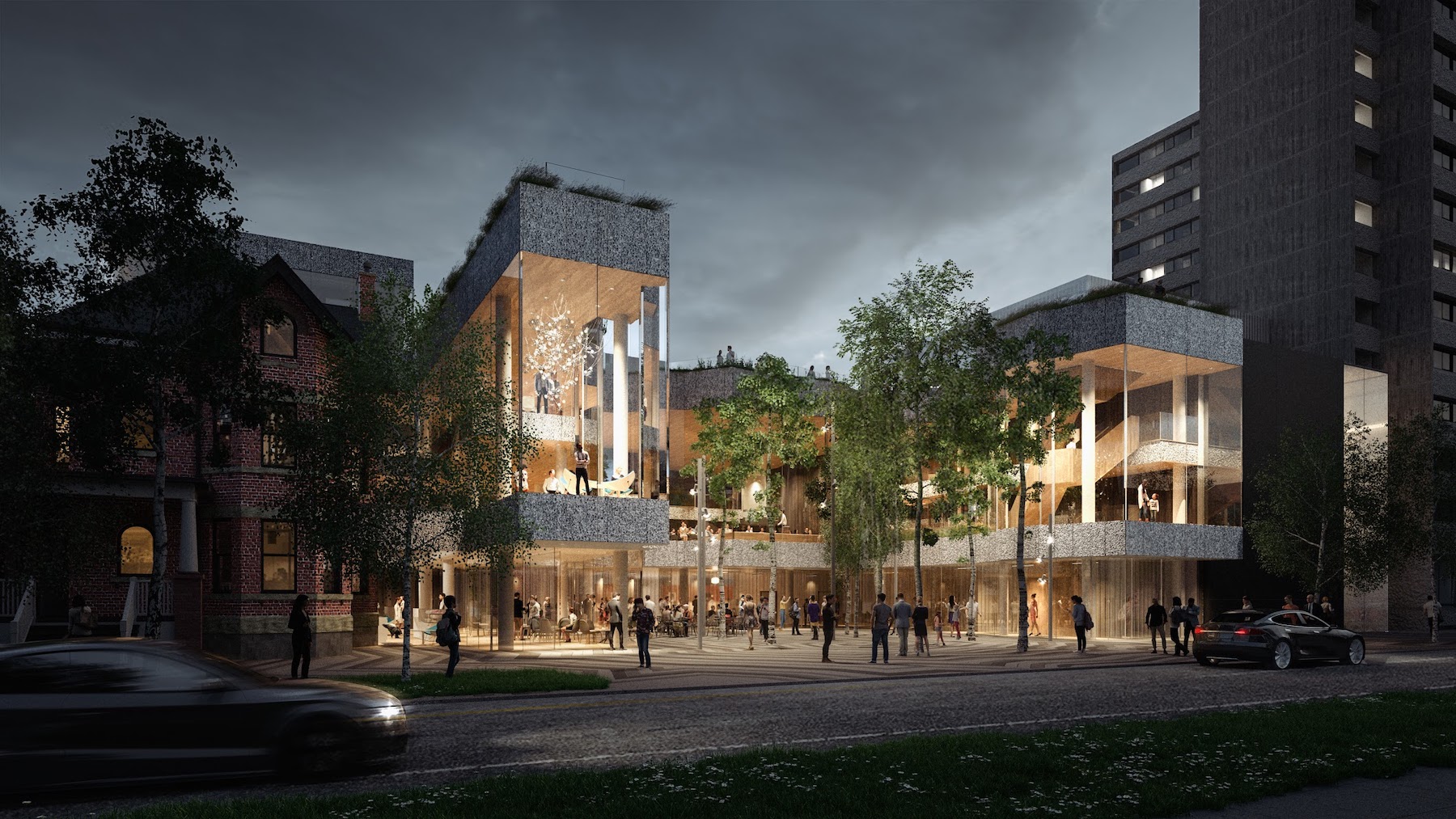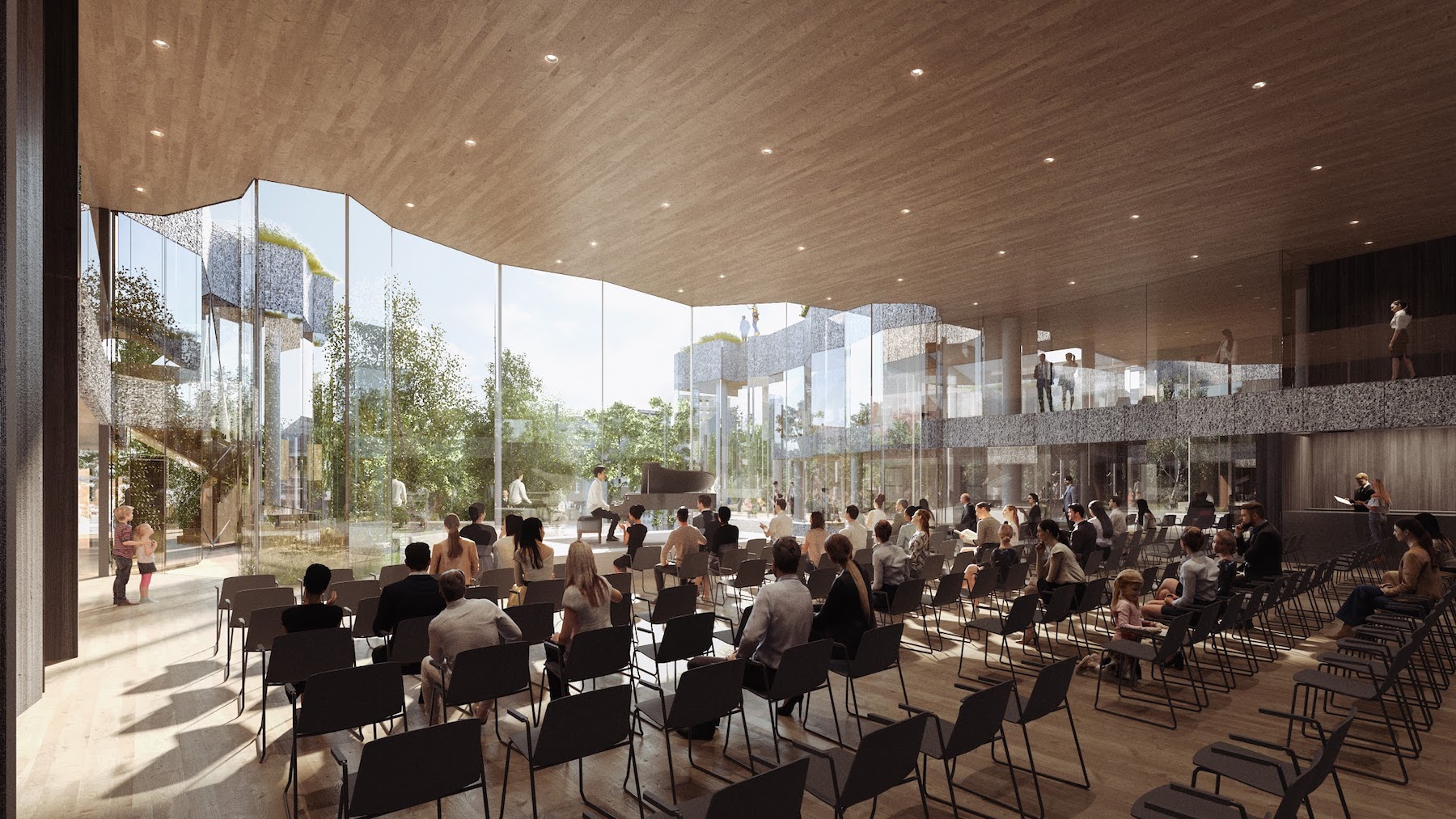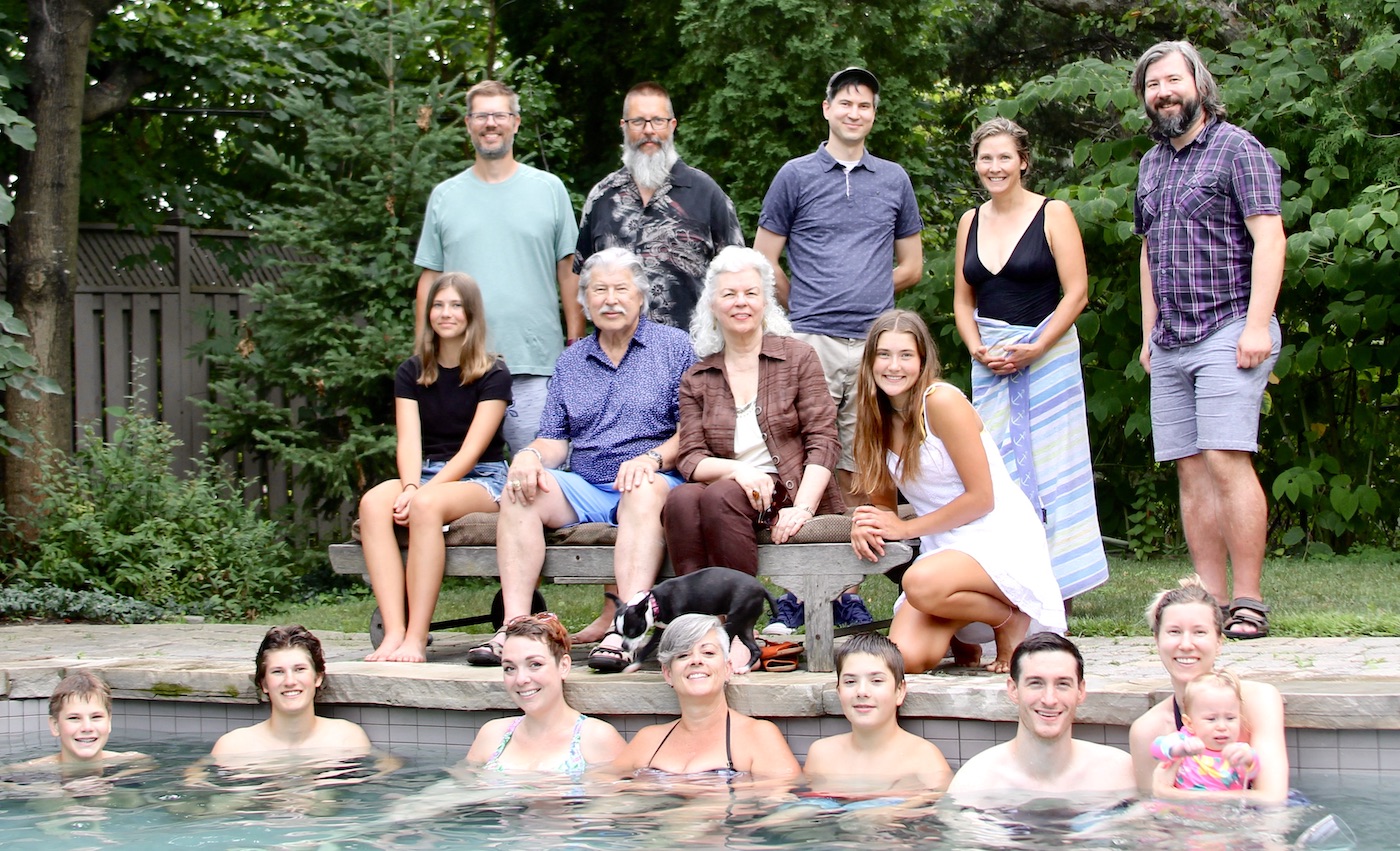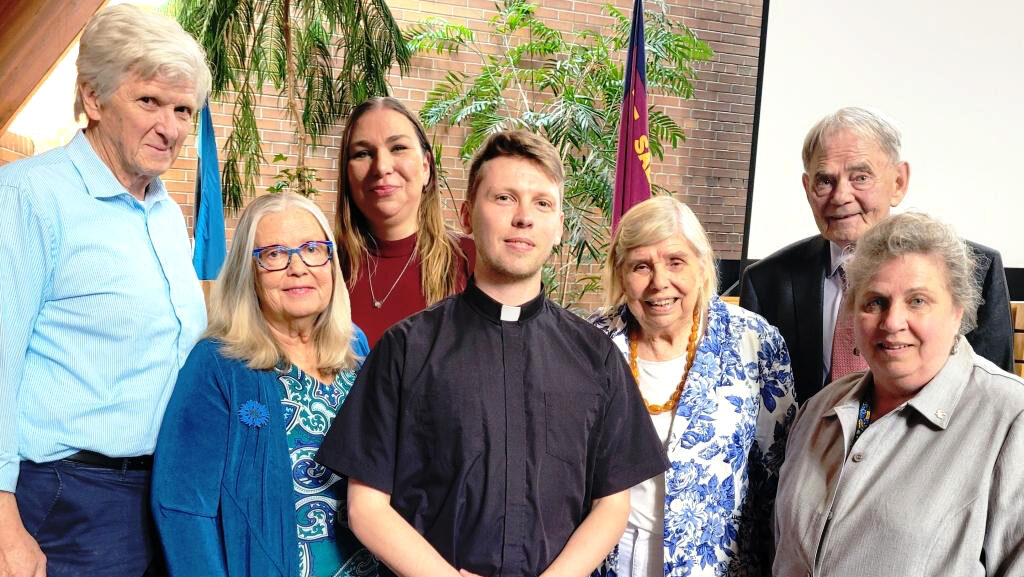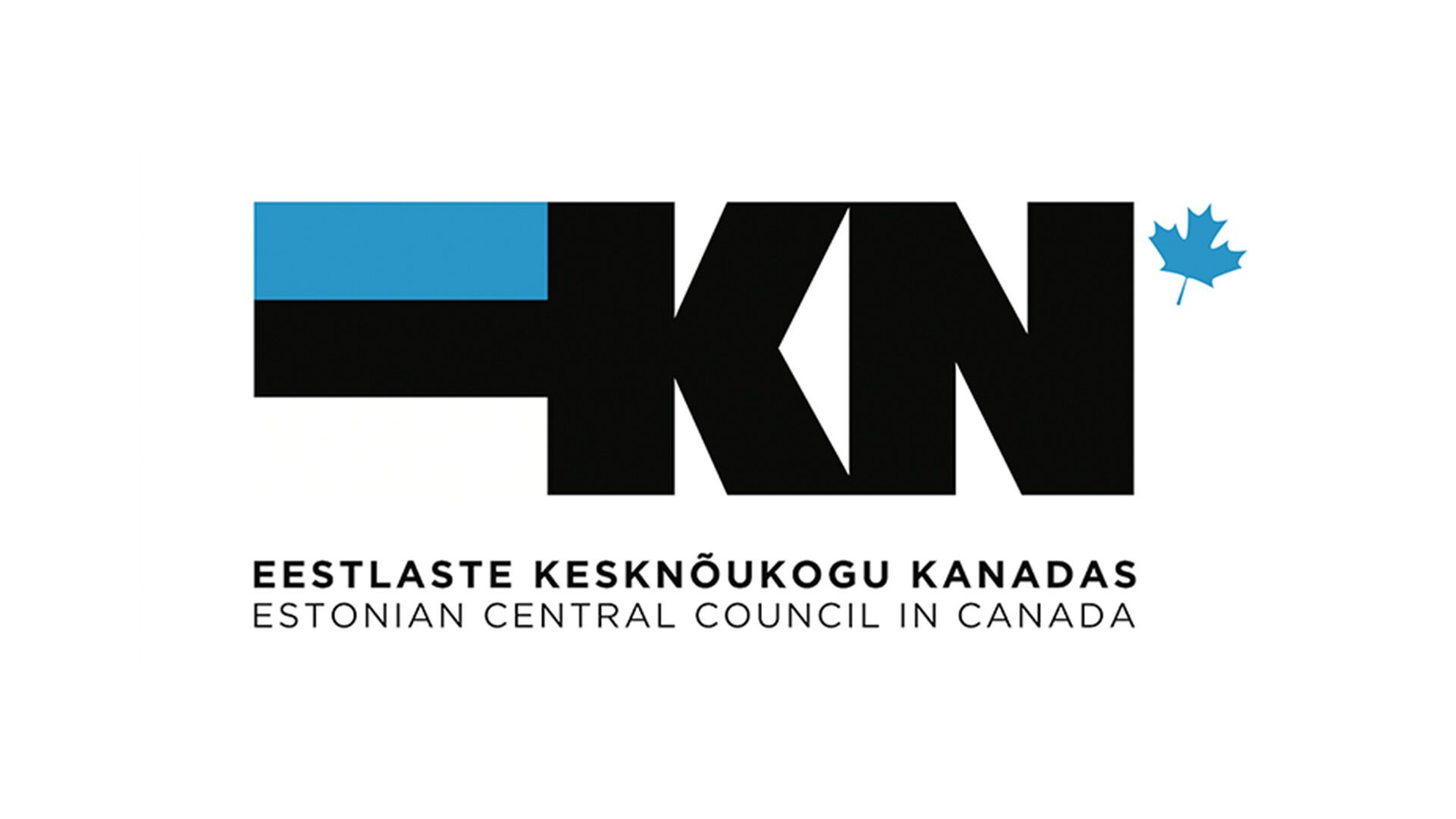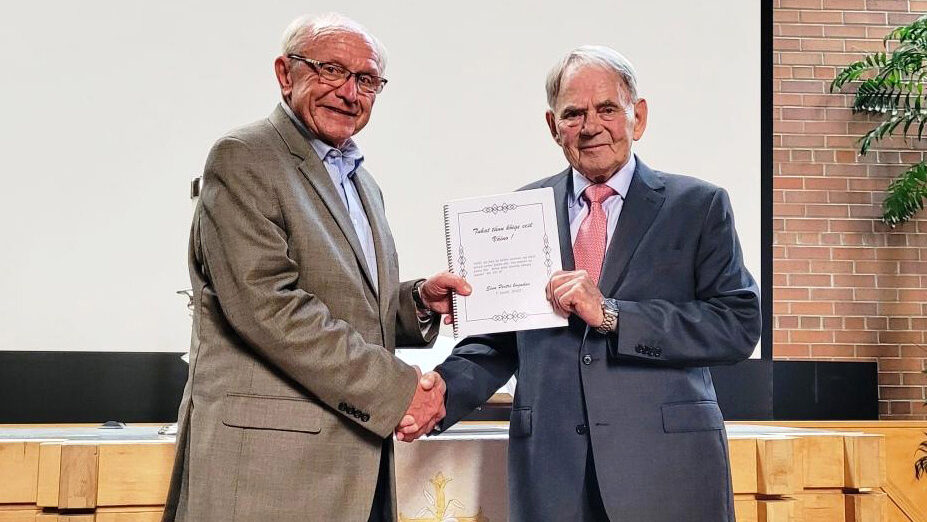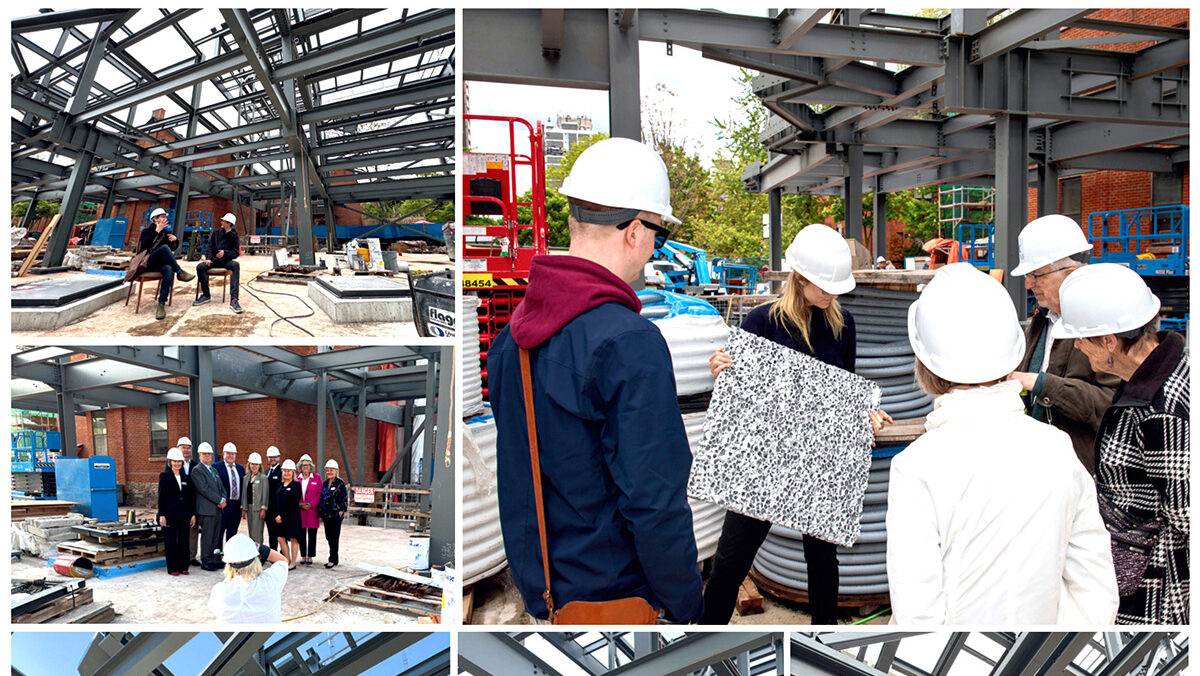Like many Estonians who fled their homeland, the Altosaar and Kõresaar families eventually settled in Canada, and made their homes in the province of Ontario. After a four-year stay in Sweden, Ats, Ella and Tõnu settled on a farm in St. Catharines where they were fortunate to be sponsored by Tõnu’s great-aunt. Victor had to go to Canada alone as he needed to show he could provide for his family, leaving his wife and infant daughter behind. Victor, Maimu and Anne were reunited in Canada a year and a half later, and settled in Thunder Bay – the site where the Canadian government dispatched them as workers were needed in the lumber industry.
The two similar sets of parents worked hard and prospered in their respective towns but found time and energy to both lead and participate in the cultural activities that Estonians nurtured wherever they went. They also provided Tõnu with a brother, Tom, and Anne with a brother, Andrus. The second generation grew up to become well educated, successful adults who had their Estonian language and heritage instilled in them from their first breath. Tõnu graduated from the University of Toronto with a five-year Bachelor of Architecture degree and Anne earned a BSc in Psychology from the University of Toronto and MD from McMaster University.
Tõnu is a partner with the respected firm B+H Architects, headquartered in Toronto, and employing 450 people in ten offices worldwide. Anne specialized in paediatric medicine at McMaster University and continued her fellowship at Toronto’s Sick Children’s Hospital.
Two ‘islands’ meet at Metsaülikool
Fast forward to Metsaülikool (Forest University), an annual cultural camp held at Kotkajärve, a pristine tract of land in Muskoka, Ontario, purchased by the Estonian community to hold camps for the active and vibrant community of scouts, guides and others.
It was here that the two “islands” met – Kõre-saar and Alto-saar – while on the organizing committee, and began a life together founded on Tõnu’s flourishing career with Anne as the family mainstay. With their five children, they became a “saarestik” as one wit termed them. Ultimately, the couple were in a position to make a lasting gift of $100,000 at the <I>Kalevipoja Laud<I> level to KESKUS International Estonian Centre – a decision enthusiastically supported by their family.
“We are very thankful to our parents because they were very ‘eestimeelsed’,” Anne recounts. “We spoke Estonian before we learned English and this upbringing was very formative for both of us though it resulted in a few bumps when we started English school. However, we caught up quickly.”
“Our parents did the right thing by instilling this knowledge and sense of pride in our culture.”
Continuing the Estonian experience
“Neither one of us was born in Toronto, where there is such a strong community, but because of our parents’ influence, we were able to recreate for our children the Estonian experience that they gave us,” Tõnu said.
The couple raised their family in Toronto and the children participated in the range of activities offered by the Estonian community.
“We have the joy and privilege of having all five children live close to us.” Anne said.
Mikk, 53, only recently moved to Barrie with his wife Jen and their son, Aleks, 12, and the rest remain in Toronto. Heiki, 51, has four children with his wife Erin; Abby, 17, Nate, 16, Callum, 14 and Ellie, 12; Mark, 39, is married to Heather; Peter, 36, and Erica have a son, Robert, 3; and daughter, Katrin, 32, and husband Michael have a daughter, Quinn, 18 months.
This brings up the issue of ongoing “eestlus” and how this can be developed and nurtured.
KESKUS to welcome all into the Estonian fold
“It will be important for KESKUS to welcome Estonians at every level – those who speak the language and those who don’t, but are interested in their heritage,” Anne said. “It’s a big factor. The programs will also need to be appealing and easily accessed as our children’s generation leads very busy lives, often with both spouses working.”
She points out that their family is a perfect example of merging cultures. All their children are married to non-Estonians, but have stayed connected to their heritage in one way or another.
Like his father and grandfather before him, Mikk is a scout leader, and his son Aleks is the fourth generation in the family to be involved in Estonian scouting. Heiki worked on restoring old churches in Estonia on the island of Saaremaa. Katrin has sung in the Estonian School choir, including at Eesti Laulupidu and also in the Ööbik choir; Peter went to Jõekaaru and a scout jamboree in Estonia with Mark, who makes great rosolje and kringel. All attended Estonian School.
“They have all enjoyed visiting Estonia and understanding the language,” Anne said.
The other issue that initially gave the couple pause was their hope that the former Estonian House in Toronto, built by their parents’ generation (which has been sold), could be redeveloped into a modern facility.
“We were big supporters of this idea, as we liked the location of the Estonian House, but now that this option is no longer on the table, we are supporting KESKUS,” Tõnu explained.
KESKUS architecture creates a striking building
They are pleased with the centre’s design by Estonian-Canadian architect Alar Kongats and if anyone is well qualified to offer a professional opinion, it’s Tõnu. He is a Fellow of the Royal Architectural Institute of Canada (FRAIC) and has been involved as a lead architect in numerous high-profile projects in Toronto and around the world. He opened his company’s first office in China (Shanghai) and in the Middle East (Dubai).
“The design of the new centre is excellent; Alar Kongats is a good architect and there is no doubt it will be very striking building.”
Planning for a strong future for the Estonian community is their goal with supporting KESKUS.
“We want to provide hope for future generations so that when they show interest in their heritage, there is somewhere for them to go,” he said.
Anne added: “This gift allows us to help express our gratitude to our parents for the upbringing that has enriched both our lives.”
And that gift will very fittingly grow and prosper.
Their family name will designate a section of the KESKUS roof garden, a charming green space that will be used for special events, education and quiet contemplation. Tõnu is a dedicated gardener and has fashioned over 100 intricate bonsai plants, which dot their Toronto property.
They believe that Ats, Ella, Victor and Maimu would be particularly pleased to know that out of the chaos and heartache of leaving their homeland is born a space of peace and tranquility for their children, grandchildren and those yet to come.
Get involved and help support our future
Are you interested in helping build this spectacular new home for the global Estonian community? Please join our growing list of capital campaign donors! The International Estonian Centre’s donor categories are Kalevipoja Laud for gifts over $100,000 (including naming rights for specific areas), Viru Vanemad for gifts over $10,000, and Kungla Rahvas for gifts up to $10,000. Stay tuned for the launch of the Kungla Rahvas campaign in 2021.
To make a donation, please contact Urve Tamberg at donations@estoniancentre.ca.
Donations may be made as a family gift, or in honour of an individual or family. All Canadian and U.S. donations will be issued a tax receipt.
Let's stay connected…
- Facebook: Estonian Centre (@EestiKeskus)
- Instagram @keskus.iec
- Twitter @keskus
- Eesti Elu: Look for our articles in the Eesti Elu print edition, as well as on www.eestielu.ca. All articles are also available on our website www.estoniancentre.ca.
- Sign-up for the email newsletter on www.estoniancentre.ca (bottom of our home page).
